
A family at a drive-in restaurant has cool air piped into their car. 1957.
During the 1920s, car ownership exploded. Everyday consumers were making more money and families were able to afford vehicles. In turn, businesses such as drive-in movie theaters and restaurants became more popular.
After all, if the notions that drove motorists to the open road in the first place, namely the yearning for independence and personal freedom, could be extended beyond the car to the various activities associated with travel, there would be money to be made.
Drive-in eateries date back to 1921 when a Texas chain of restaurants called the Pig Stand began incorporating the practice.
At drive-ins, customers would park their car and immediately be met by carhops who would take orders and deliver them to the kitchen. When the food was ready, the carhop would bring it back to the car for the customer to enjoy in their vehicle.
This model improved the speed and efficiency of service. Restaurants continually tried to enhance the concept by increasing the speed at which the food could get to the customers. Hence the roller-skating carhops that became a popular trend across the country.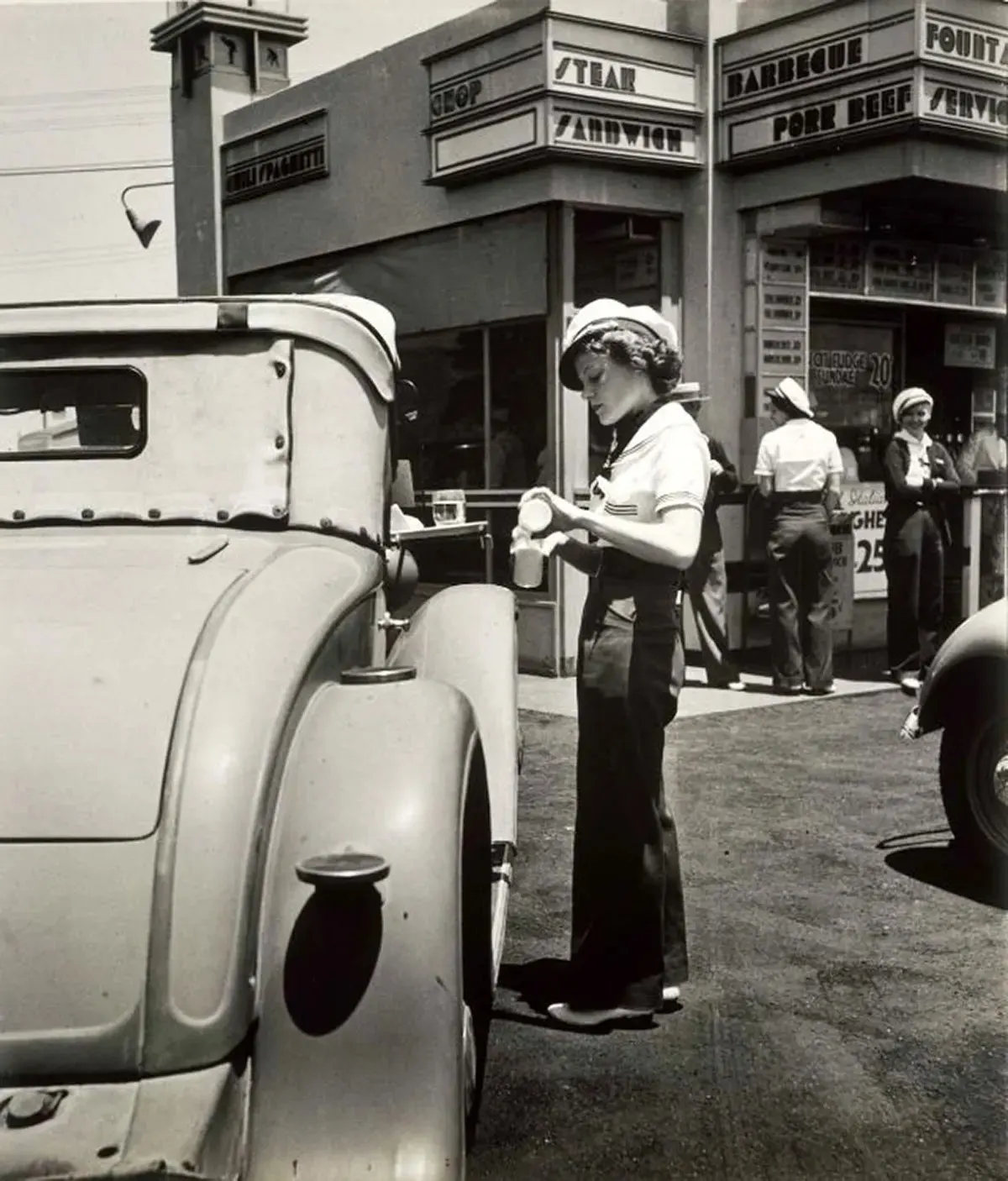
A carhop pouring milk from a bottle into a glass, at McDonnell’s Drive-In. 1930s.
Soon architects began looking for ways to improve these leisure-inspired structures, making them the perfect match of form and function.
This included constructing circular drive-ins, so that the carhops could get from the kitchen to the car windows more quickly, and adding canopies to shelter carhops from the sun.
Eventually, however, drive-in restaurants went into decline, replaced by the introduction of the drive-through, which negated the need for hiring carhops and saved on money and time.
At a drive-through restaurant, conversely, customers wait in a line and pass by one or more windows to order, pay, and receive their food.
California-based In-N-Out Burger became one of the first eateries to provide drive-through services as early as 1948, but it was when McDonald’s opened its first take-out window in Arizona in 1975 that the real crossover occurred. By that time, drive-in restaurants were already few and far between.
McDonnell’s Drive-In at night. 1930s.
The Montlake Drive-In Market, opened in 1931, Seattle, Washington, 1937.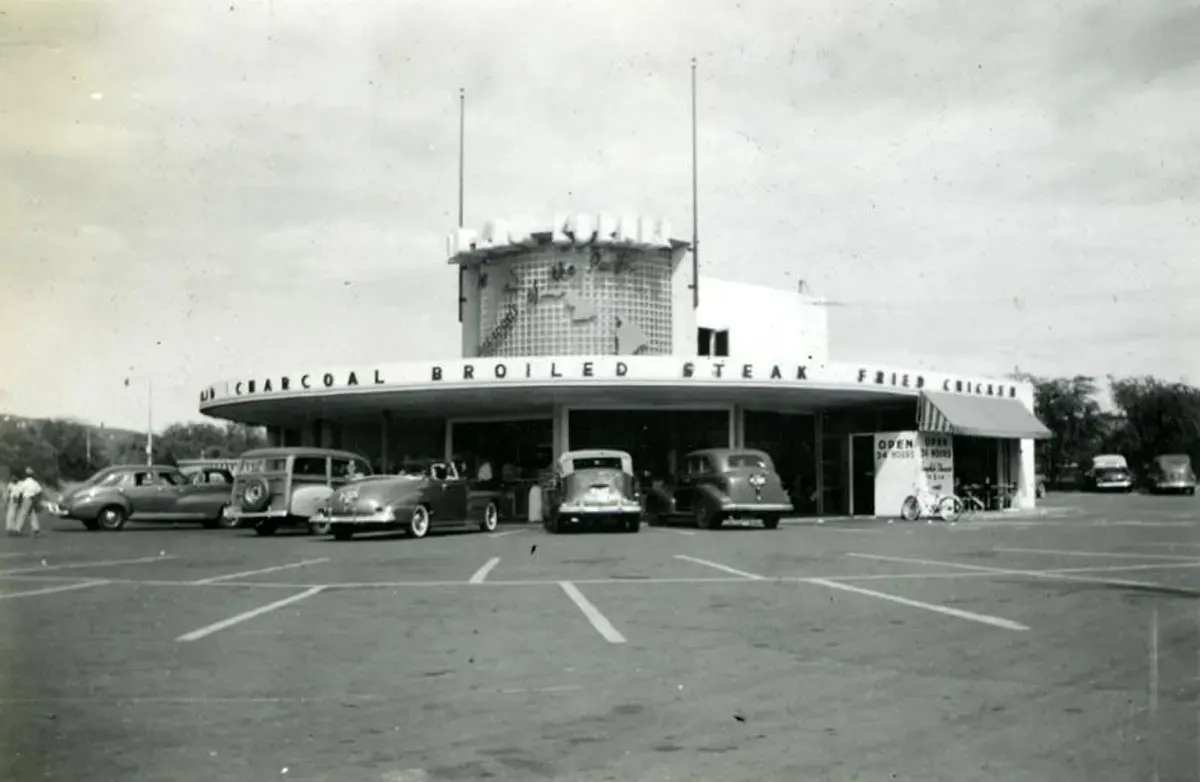
Kau Kau Korner Drive-In, Hawaii, 1940s.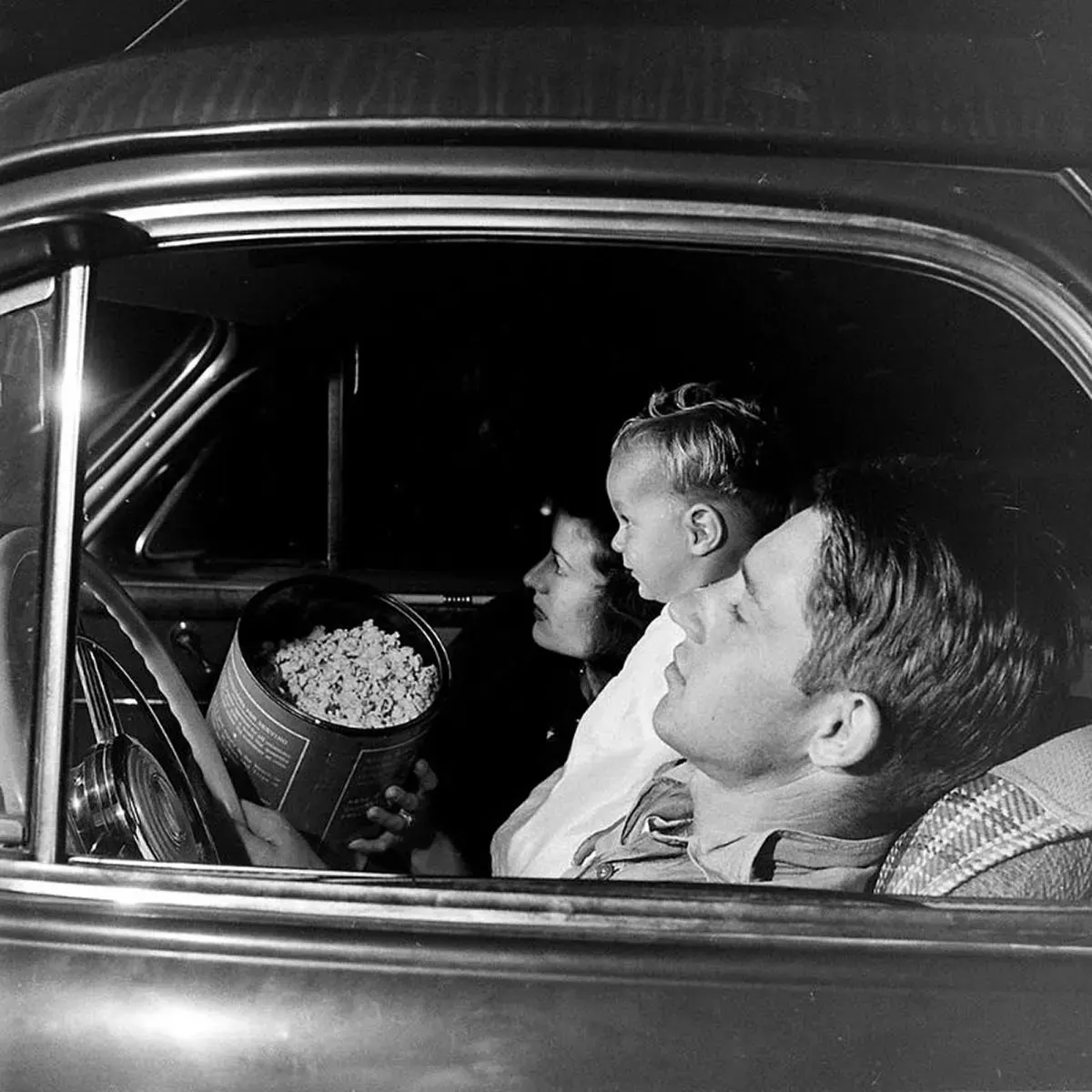
A late night at the drive-in, a couple and their young son watch a film while they sit in their ’41 Buick coupe, with almost an equally large canister of popcorn.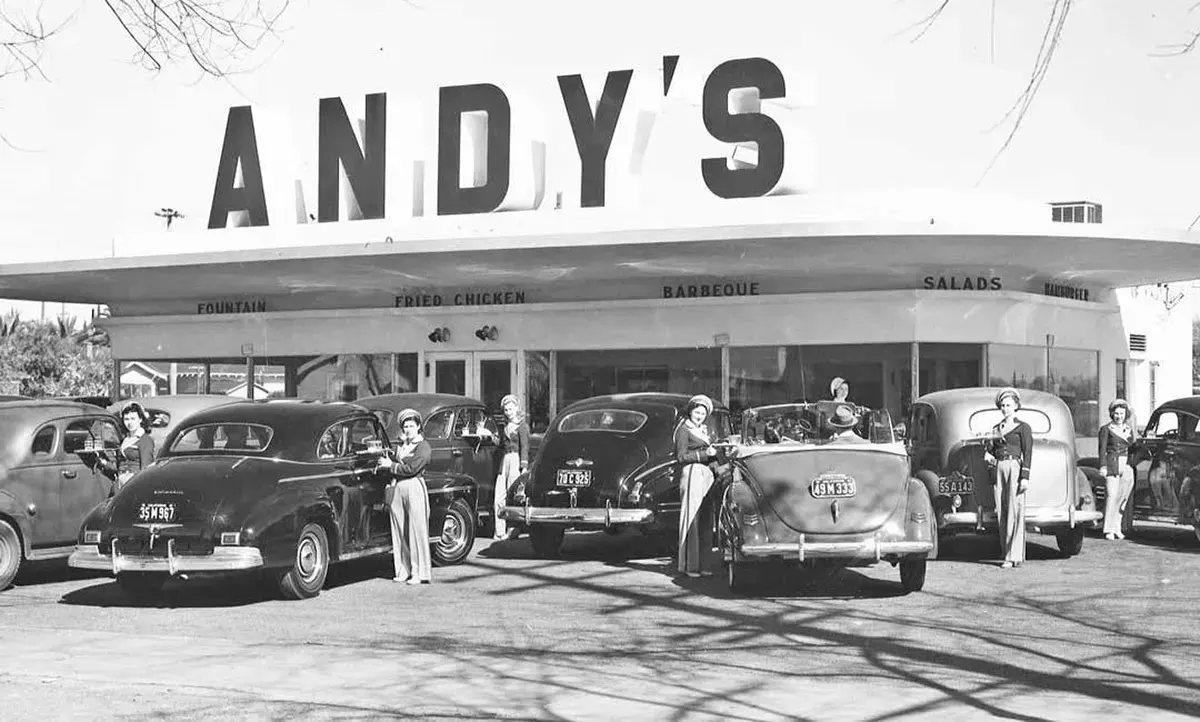
Andy’s Drive-In with carhops pose in front with cars they’re serving, circa 1941.
A neon sign at a drive-in restaurant in Hollywood, California, 1942.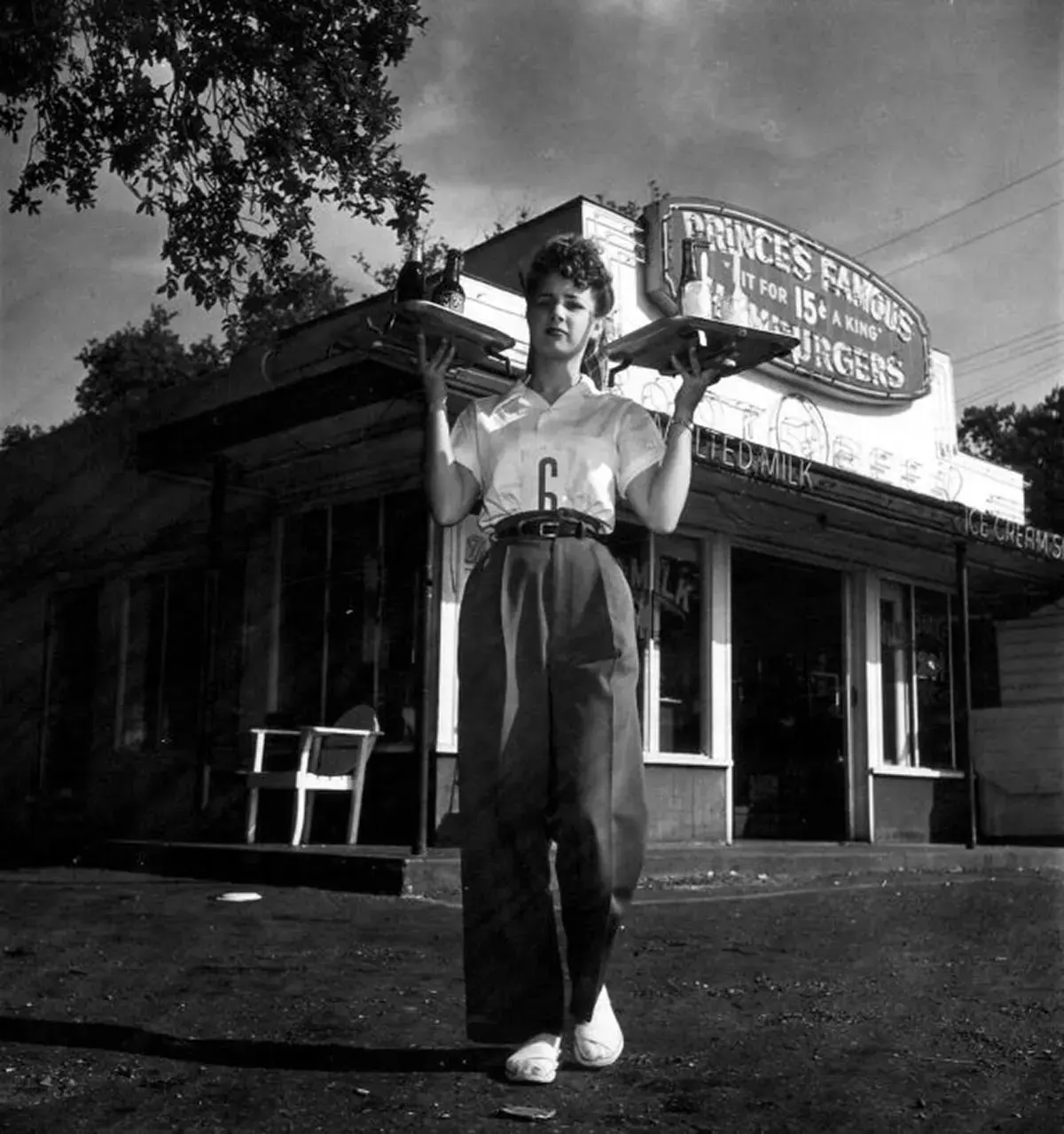
A carhop holds two trays as she poses for a shot in front of a small diner, Houston, Texas, 1945.
A friendly carhop converses with two guys in a ’46-7 Mercury convertible, at Simon’s Drive-In, 1948.
The McDonald’s Drive-In, 1950s.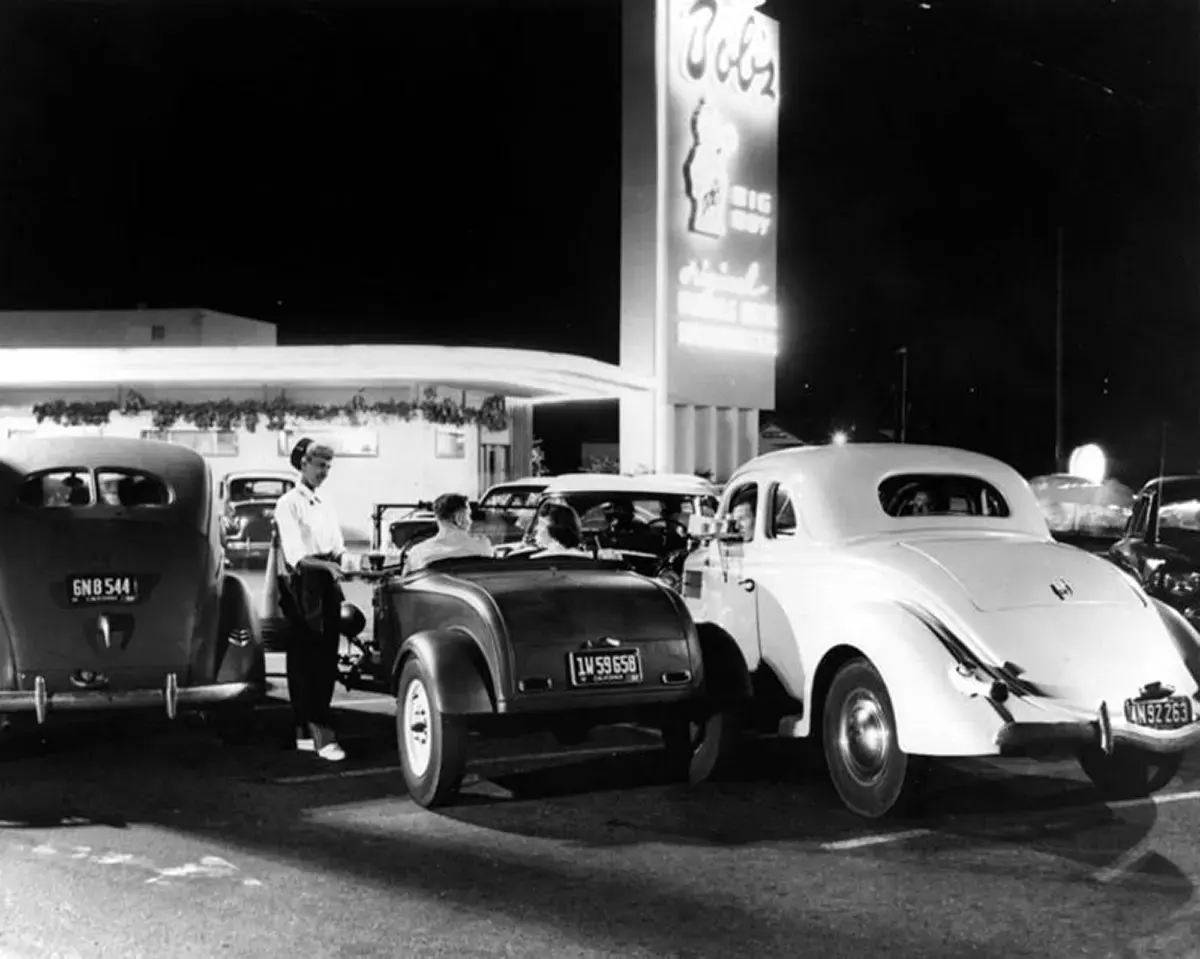
Bob’s Big Boy carhop waitress at drive-in, Southern California, 1952.
The carhop on the wall at a White Castle in Wentzville, Missouri. 1960s.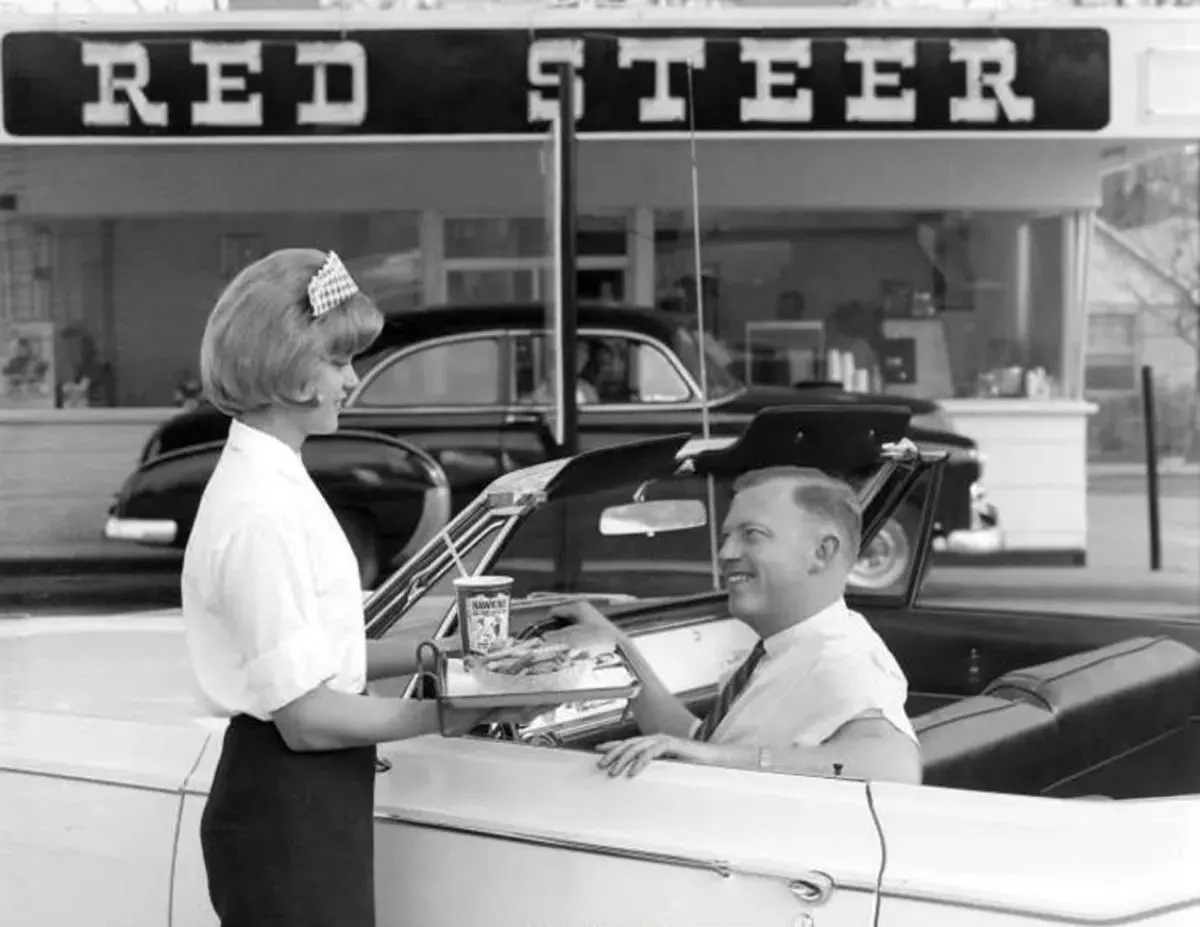
The Red Steer Drive-In, Boise, Idaho, 1960s.
Carpenter’s Sandwich Stand at 6285 West Sunset Boulevard and Vine Street in Los Angeles. 1930s.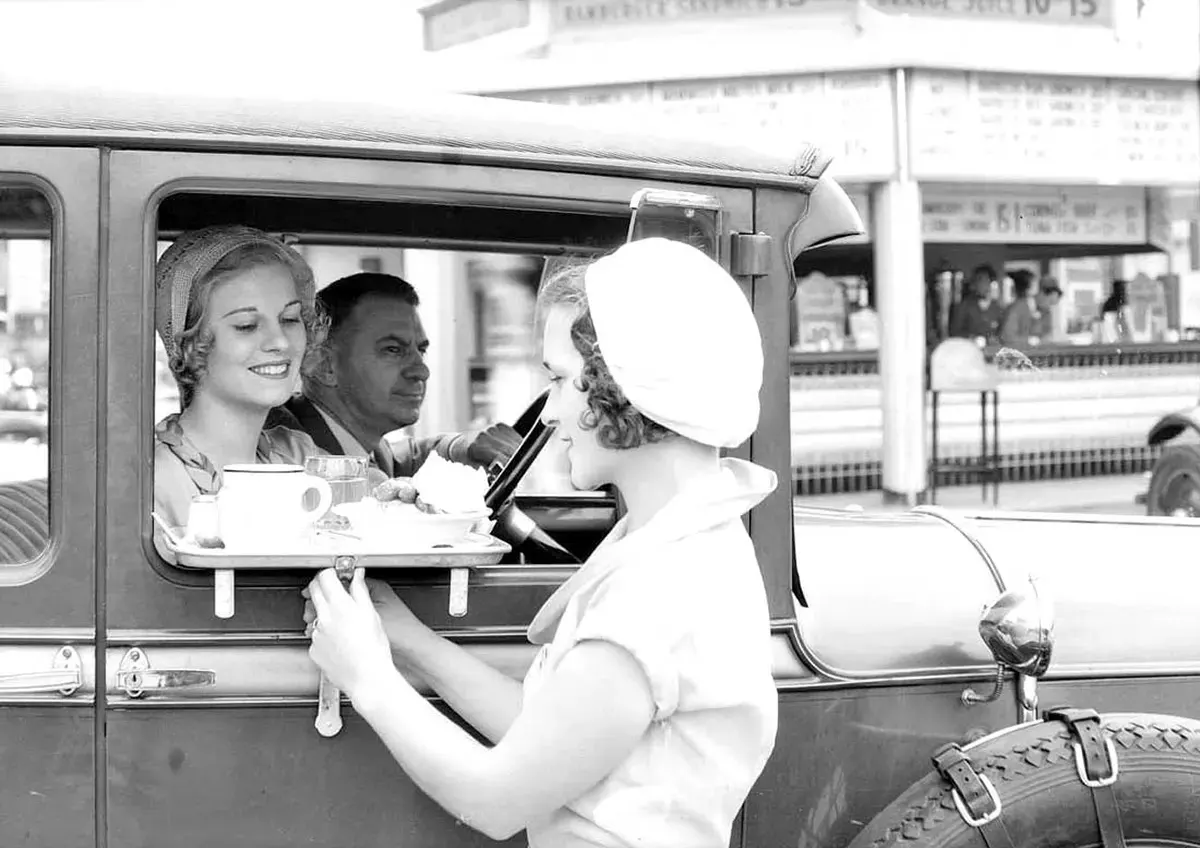
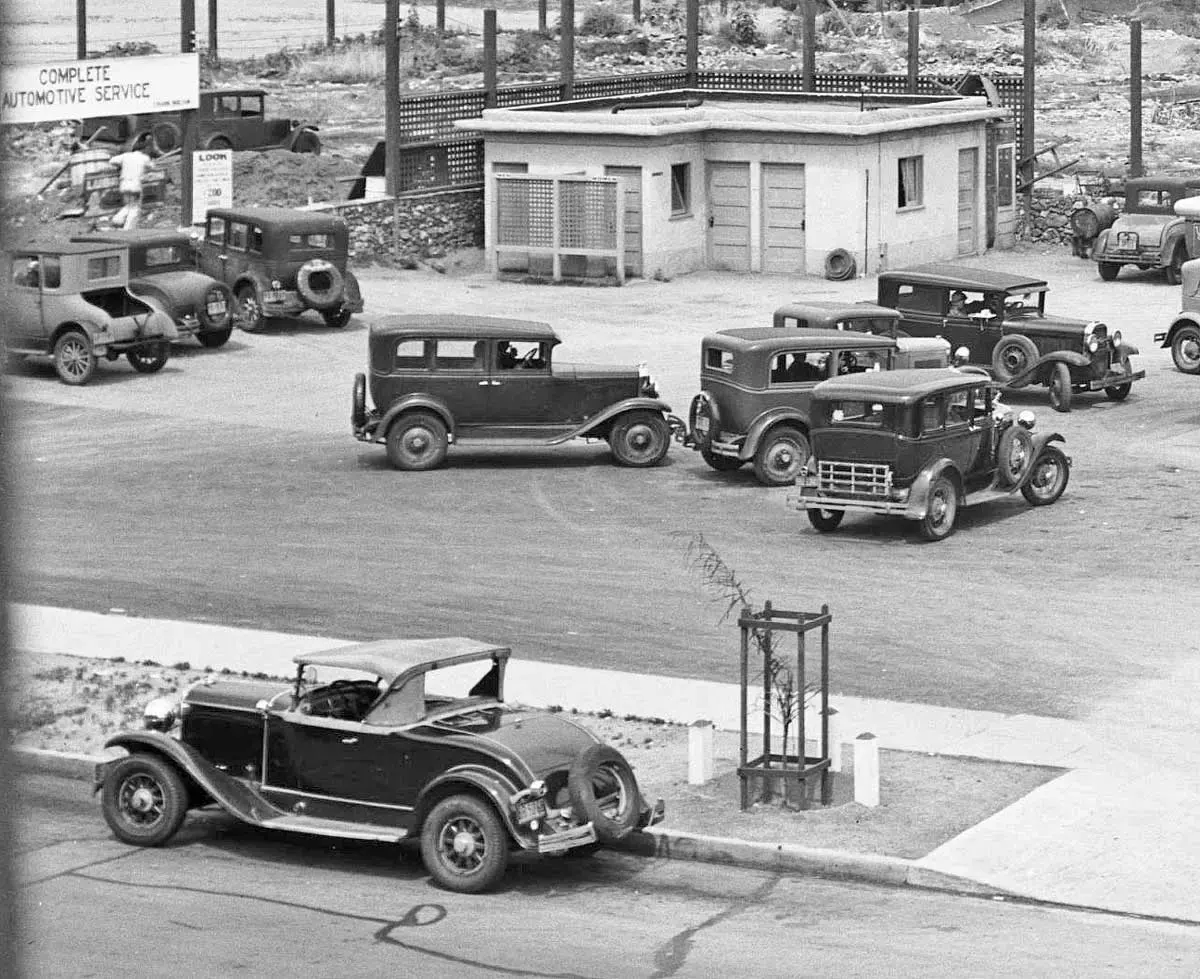
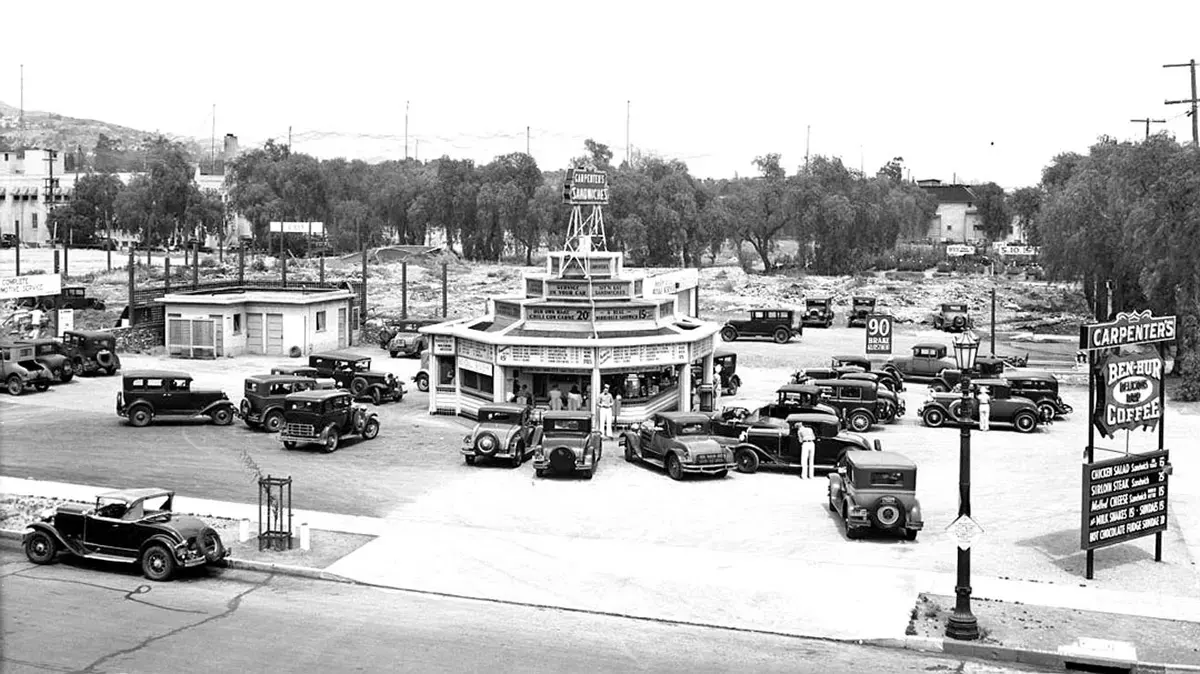
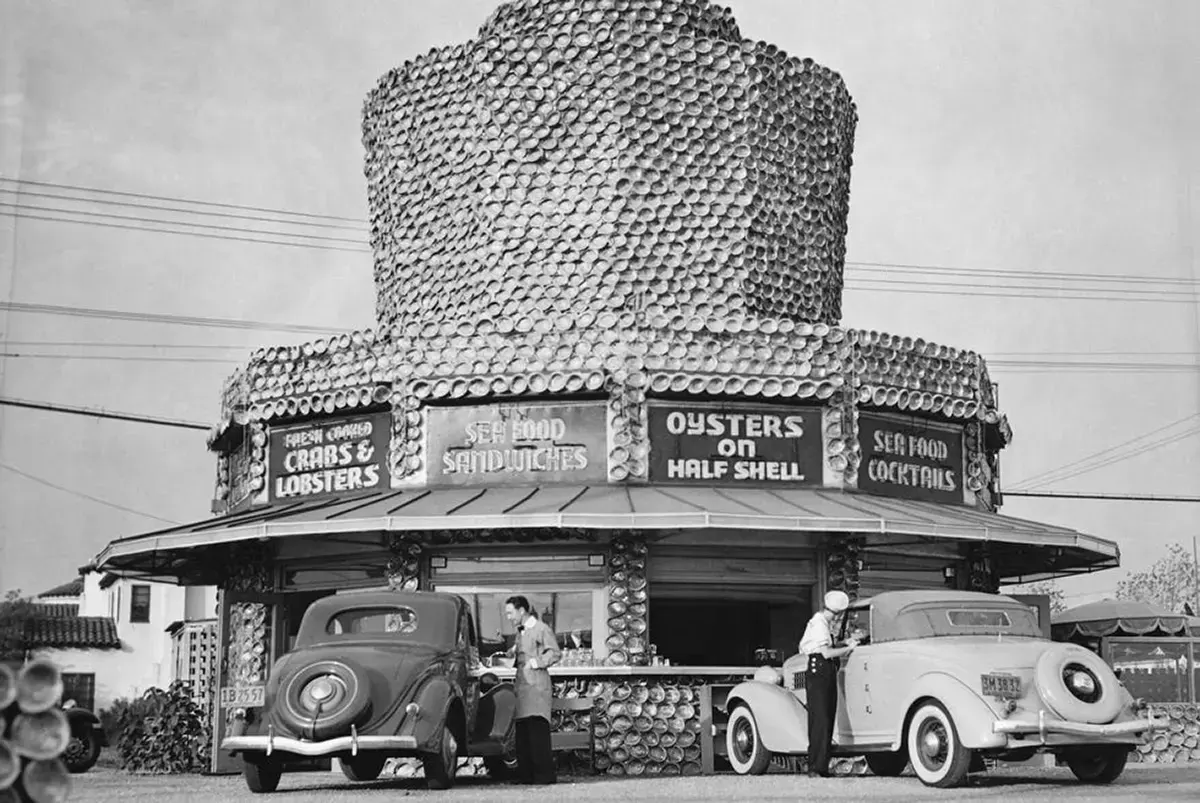
This seafood restaurant was covered in 50,000 abalone shells.
The Twin Barrels in Los Angeles. 1939.
After prohibition ended in 1933, people found just about any and every reason to toast. Some drive-ins served alcohol. 1940s.
To keep up with demand of drive-ins during the ’50s, some locations developed a new system: Sending meals—and bills—to cars by conveyor belt. 1950s.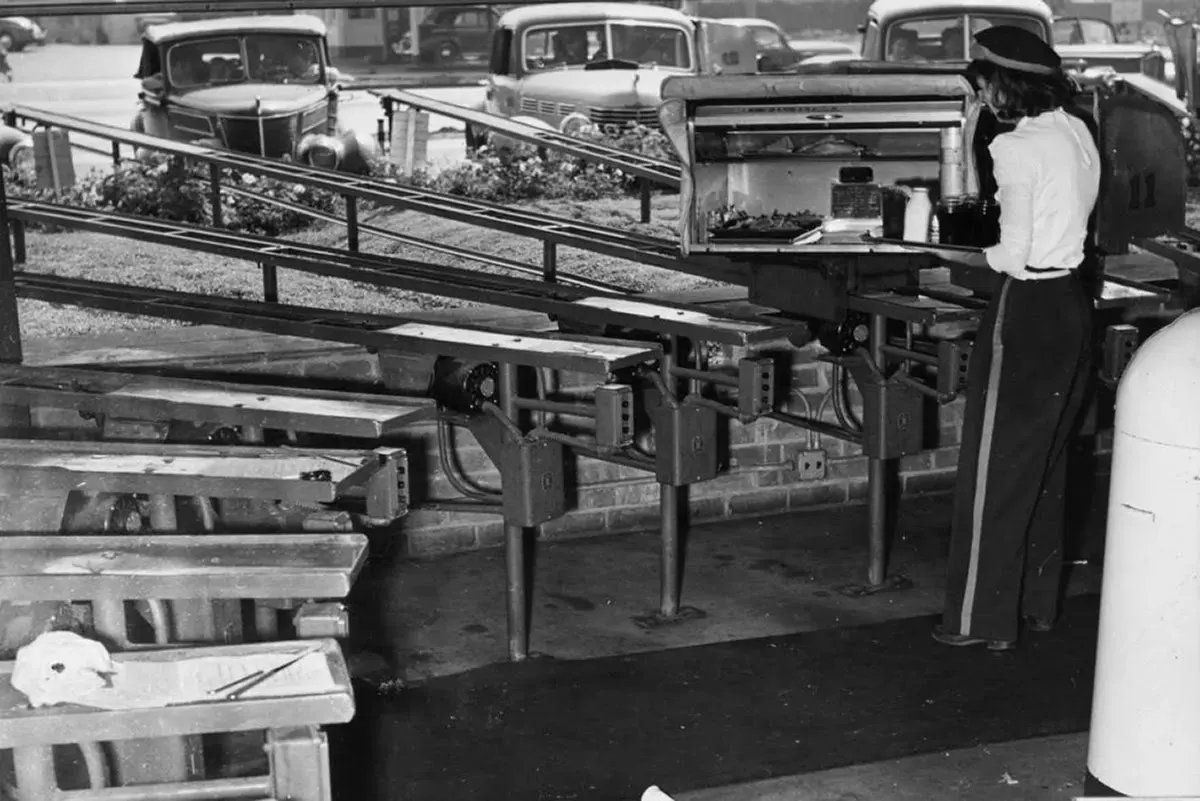
An employee loads the conveyor belts with meals for hungry customers.
Drive-ins didn’t only serve burgers and fries. Depending on where you went, you could get a full dinner or just a steaming coffee in a mug. 1950s.
A couple pulls up in their shiny convertible, complete with tail fins. 1950s.
From having a full meal to just an ice cream treat after a night out, these establishments offered it all. 1950s.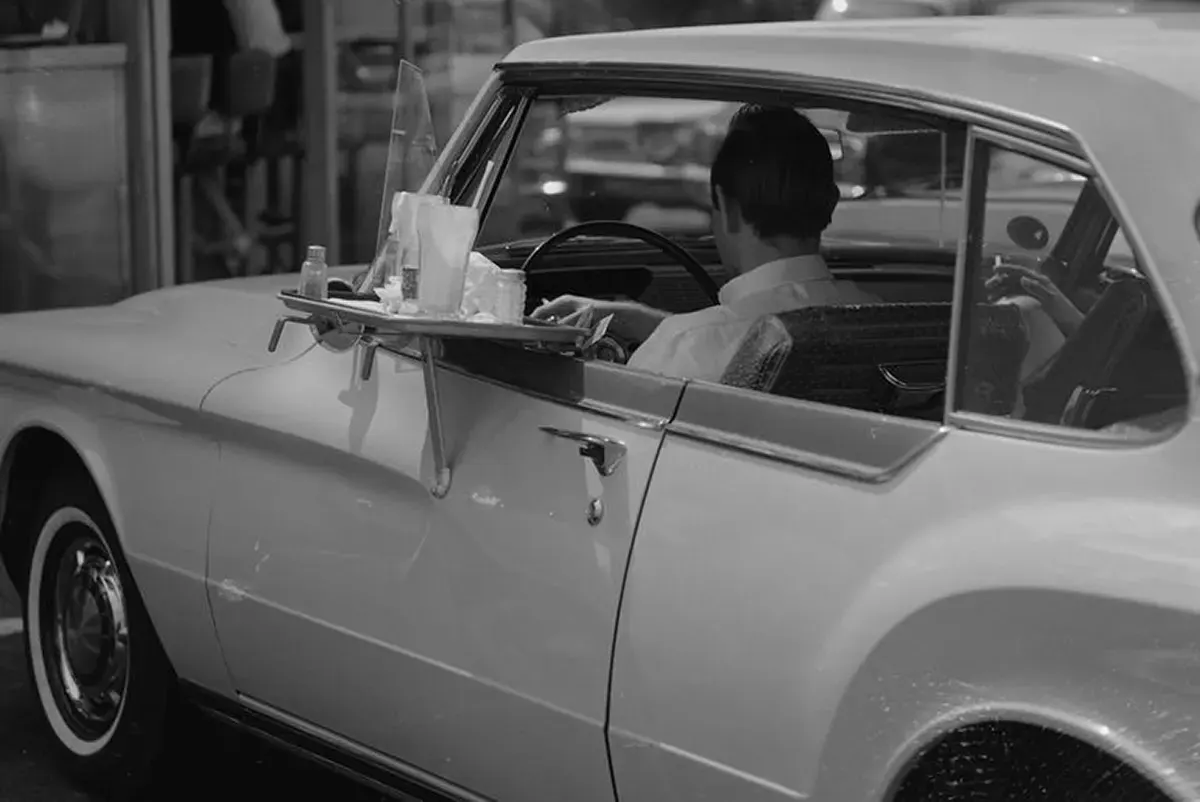

In the 1940s, men dressed in short shorts and cowboy boots served up women at a drive-in in Dallas.
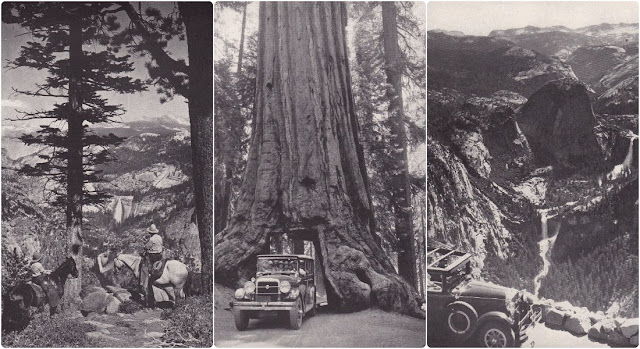
28 Travel-Book Photos of Yosemite National Park in the 1930s _ OldUS


